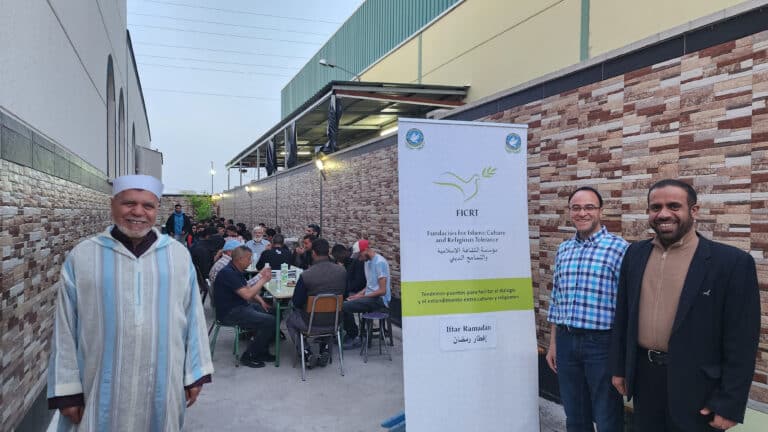Now that the FICRT Foundation aims to extend the dialogue between Muslims and Christians to the entire Abrahamic family, with the meeting to be held in Cordoba on May 16 and 17, the first of an annual call, it is worth looking back and remembering the first two Islamo-Christian congresses. Held in 1974 and 1979, these two meetings were precursors of the dialogue between the two confessions and paved the way for the many initiatives in this direction that have been held subsequently.
To speak of the beginning of the Islamo-Christian dialogue in Spain, we must refer to the Association for Islamo-Christian Friendship, founded in Madrid in 1968 by a group of Muslim and Christian personalities.
Specifically, the initiative came from Dr. Husain Munis, Egyptian writer and professor, specialist in Spanish-Arabic History and director of the Egyptian Institute of Islamic Studies; and Salvador Gómez Nogales, Doctor of Philosophy and professor of Muslim Philosophy at the Pontifical University of Comillas (Madrid).
This interest in opening a dialogue between the two crystallized with the holding of the first two congresses, for which the city of Córdoba was chosen as the venue.
It is no coincidence that Cordoba was chosen as the venue, since this city is one of the main meeting places of cultures and tolerance is one of its distinctive features.
In fact, it should be remembered that Cordoba was the birthplace of four universal thinkers: the pagan Seneca; the Jew Maimonides; the Christian Osius of Cordoba, advisor to Emperor Constantine I the Great; and the Muslim Averroes.
I Congress
The First Islamo-Christian Congress was held in Cordoba from September 10 to 15, 1974. Organized by the Association for Christian-Islamic Friendship, it was attended by delegations from Algeria, Egypt, Iraq, Jordan, the League of Arab States, Palestine, Saudi Arabia, Syria, Tunisia and Tunisia, in addition to the Ministry of Foreign Affairs of Spainthe Episcopal Conference of North Africa and the World Council of Churches.
In addition to the topics covered in the academic part of the Congress, there were two very special events of profound significance.
On the one hand, the historic act of the Muslim ritual prayer (Salat) in the Mosque of Cordoba, in the presence of the Christian congressmen, which had not been celebrated in this emblematic place since 1236.
On the other hand, the Christian Eucharist celebrated in the choir of the Cathedral of Cordoba, in the presence of the authorities and Muslim congressmen.
The conclusions were discussed and approved during the Assembly held on Sunday, September 15, 1974, and opened great fields of collaboration between East and West, between Muslims and Christians.
II Congress
The experience of the First Congress helped this new edition, held from March 21 to 27, 1979, in the same city of Cordoba, to surpass expectations.
The Honorary Committee included four ministers of the Spanish government at the time: Marcelino Oreja, Minister of Foreign Affairs; Aurelio Menéndez y Menéndez, Minister of Education and Science; Andrés Reguera, Minister of Information and Tourism; and Landelino Lavilla, Minister of Justice.
The strong support of the Spanish Episcopal Conference, whose president, Cardinal Vicente Enrique y Tarancón, was in charge of delivering the inaugural address, was also very important.
This 2nd Congress was attended by official delegations from many countries: Algeria, Egypt, Iraq, Jordan, Kuwait, Lebanon, Libya, Malaysia, Mauritania, Morocco, Palestine, Saudi Arabia, Syria and Tunisia, as well as representatives of the Arab League, Unesco and the World Council of Churches.
As in the First Congress, the Muslim Salat (“Prayer”) and the Christian Eucharist were celebrated in the Mosque-Cathedral of Cordoba as culminating acts of the Islamic-Christian coexistence.







